Planning to create a travel application that enables users to view and book accommodation? Try checking out the Airbnb API, which provides developers with functionalities to integrate Airbnb data into your application, and create reservations with a few clicks of buttons!
Before developing your application, consider using Apidog, a comprehensive API development tool that equips users with the necessary tools for the entire API lifecycle.
To learn more about Apidog, make sure to click the button below.

What is Airbnb?
Airbnb (short for Air Bed and Breakfast) is a website that allows users to find accommodation to stay in while traveling. It promotes a sharing economy for short-term rentals, where they link property owners with potential tenants.

Airbnb API Key Features
The Airbnb API is very developer-friendly, providing many beneficial functionalities for businesses and entrepreneurs who are looking to utilize the data Airbnb holds.
Listings and Search Functionality
- Access to Extensive Inventory: The API grants access to a vast database of Airbnb listings, allowing developers to integrate search functionalities within their own applications. Imagine a travel app that seamlessly incorporates Airbnb listings alongside hotels and hostels, offering users a wider range of accommodation options.
- Advanced Search Filters: Developers can leverage Airbnb's search filters to refine results based on specific criteria like location, price range, property type, amenities, and availability. This enables them to create customized search experiences tailored to user needs.
Booking and Reservation Management
- Streamlined Booking Process: The API facilitates seamless booking functionality within external applications. Users can search, select, and book Airbnb listings directly through the developer's platform, eliminating the need to switch between apps.
- Real-time Availability and Pricing: The API provides real-time updates on listing availability and pricing. This ensures users always have access to accurate information and can make informed booking decisions.
User Management and Communication
- Secure User Authentication: The API offers secure methods for user authentication, allowing developers to integrate login functionalities within their applications. This streamlines the user experience and ensures data security.
- In-App Messaging: Developers can leverage the API to build in-app messaging features, enabling seamless communication between guests and hosts directly through their application. This facilitates booking inquiries, clarification of details, and overall improves the user experience.
Data and Analytics
- Access to Listing Data: The API provides access to rich listing data, including descriptions, photos, amenities, and host information. This allows developers to create detailed and informative listings within their own applications.
- Analytics and Reporting: Developers can utilize the API to gather data on user behavior and booking trends. This valuable information helps them refine their applications, improve user experience, and potentially identify new business opportunities within the sharing economy.
How to Access Airbnb API?
Here is a step-by-step guide on how developers can start working with Airbnb's powerful API.
Step 1 - Log In To the Airbnb Partner Website
First, you will have to log into the Airbnb partner website.


Step 2 - Contact Airbnb Customer Service for Access to Airbnb's API

To gain access, you have to obtain permission to use the Airbnb API. As of the time of writing, Airbnb has decided to reach out to prospective partners based on the opportunity that your application or idea can be profitable for them.
Cannot Gain Access to Airbnb API? Find Alternatives with Apidog!
If Airbnb API does not grant you access to their API, you may have to resort to other API alternatives available on the Internet.
Luckily, you can use Apidog's API Hub to find the right API for your application! But before explaining what API Hub is, let's get to know APidog a bit better.

Apidog is an all-in-one API development platform that provides users with all the necessary tools for the entire API lifecycle. With Apidog, you can build, debug, mock, and document entire APIs within a single application - no more constant tab switching between different windows anymore!
API Hub: Convenient, Sorted Online API Library
There are other applications on the Internet that have similar functions and data like Airbnb. With Apidog's API Hub, you can easily search for these APIs, allowing you to get back on track with developing your application.
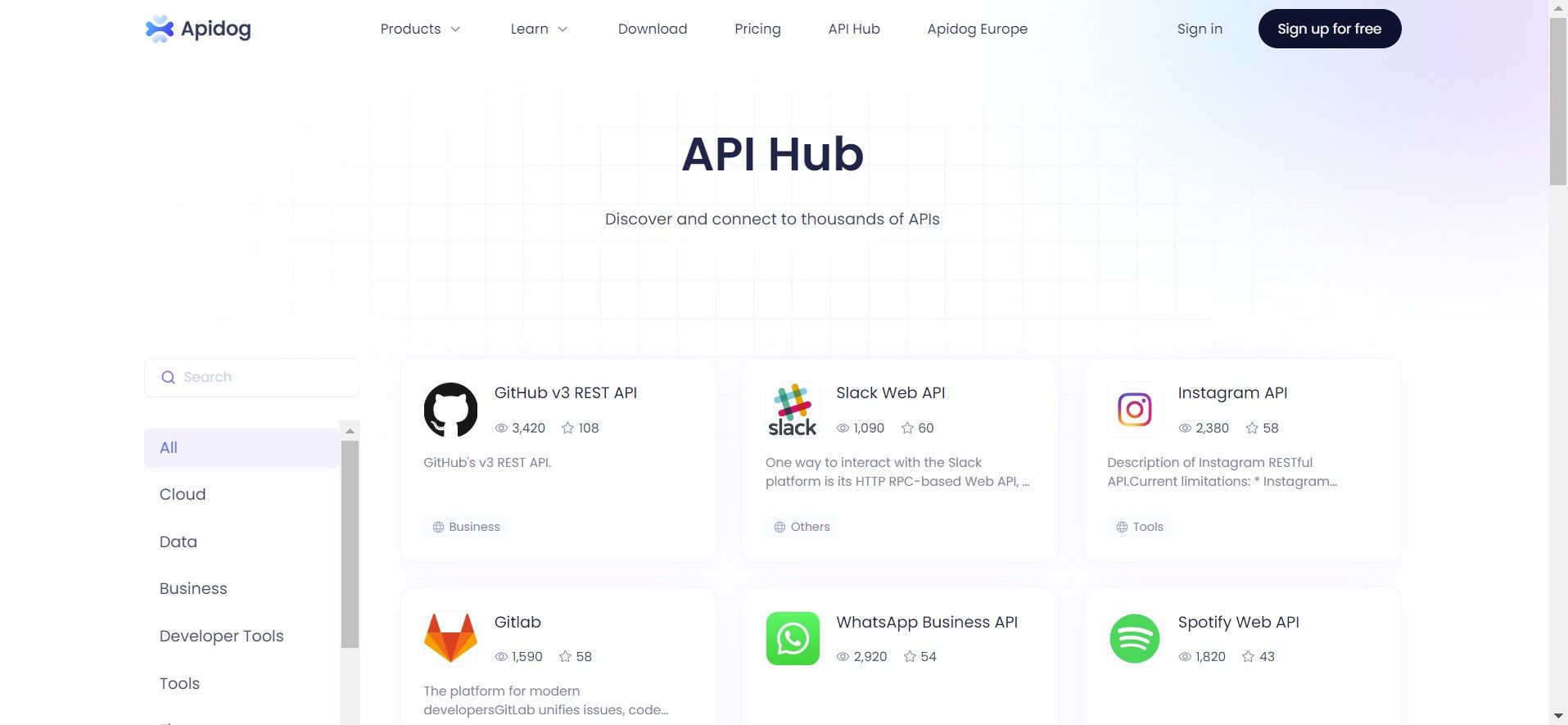

On API Hub, you can search for numerous APIs available for implementation. With a vast amount ready for adoption, it is almost certain to find an API that matches your requirements. The images below depict an example of how you can try out the popular OpenAI API.
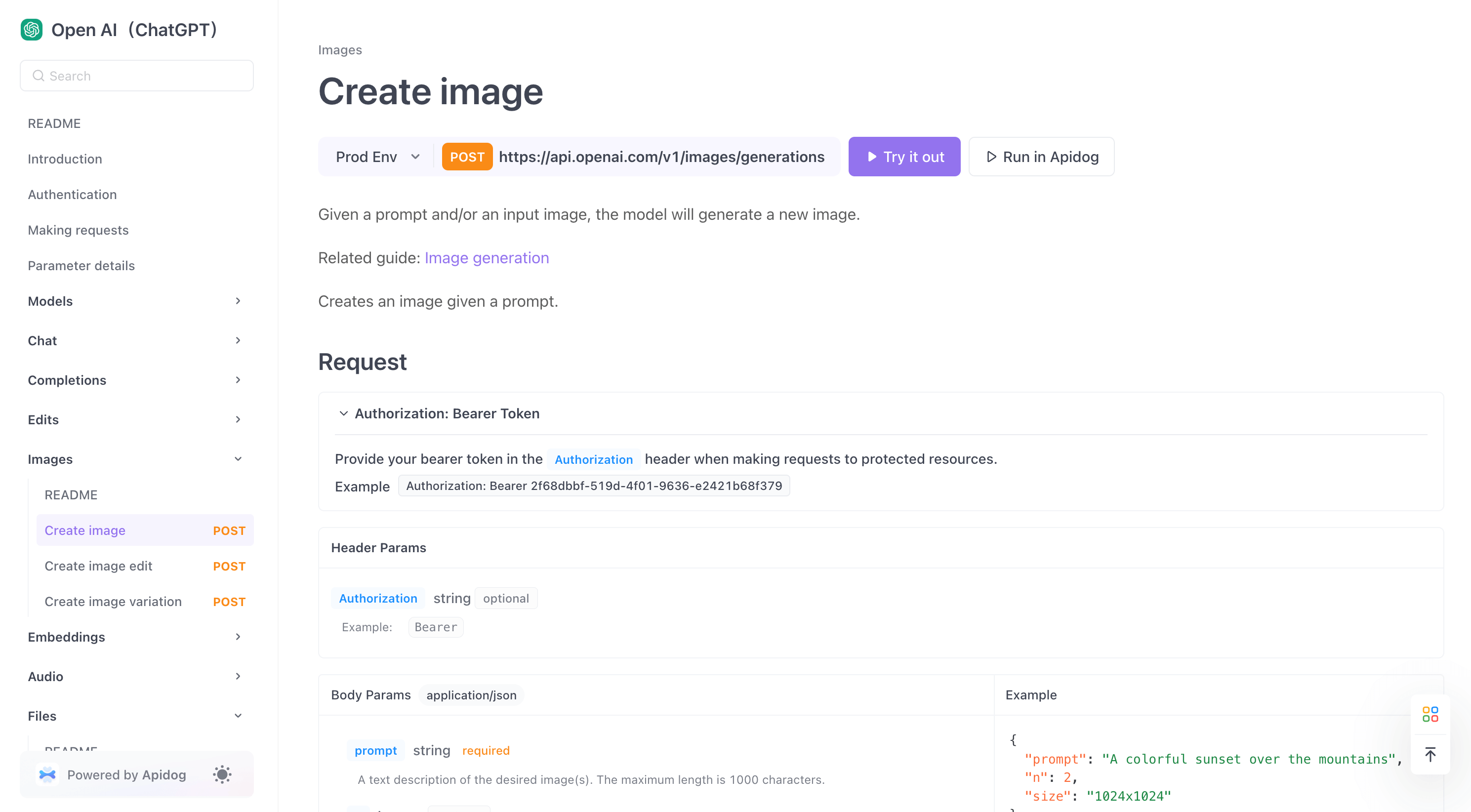
API Hub displays the APIs similar to API documentation or reference, so it is clear and easy for developers to digest the incoming new data.
Some of these examples may require registration for an account to obtain their respective API key, so make sure you know how to get them.
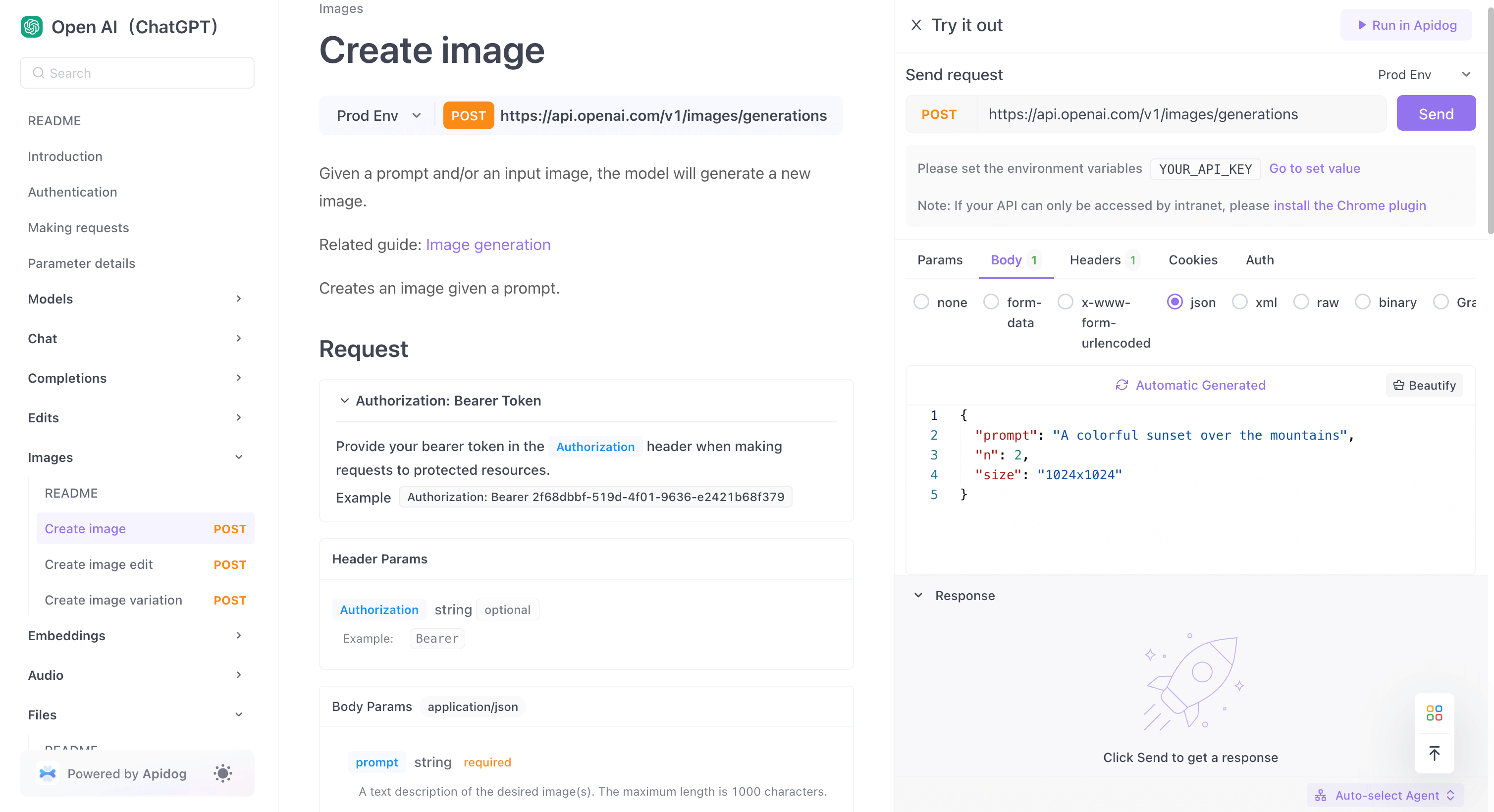
Once you have all the necessary components, hit the Send button! You should be able to see sample responses returned from the respective API you are viewing.
Checking How an API Responses Using Apidog
While developing an application that interacts with APIs, you will have to understand what each API returns in its response. To ensure that every step of your app development is fault-free, you will often need to test your APIs one by one.
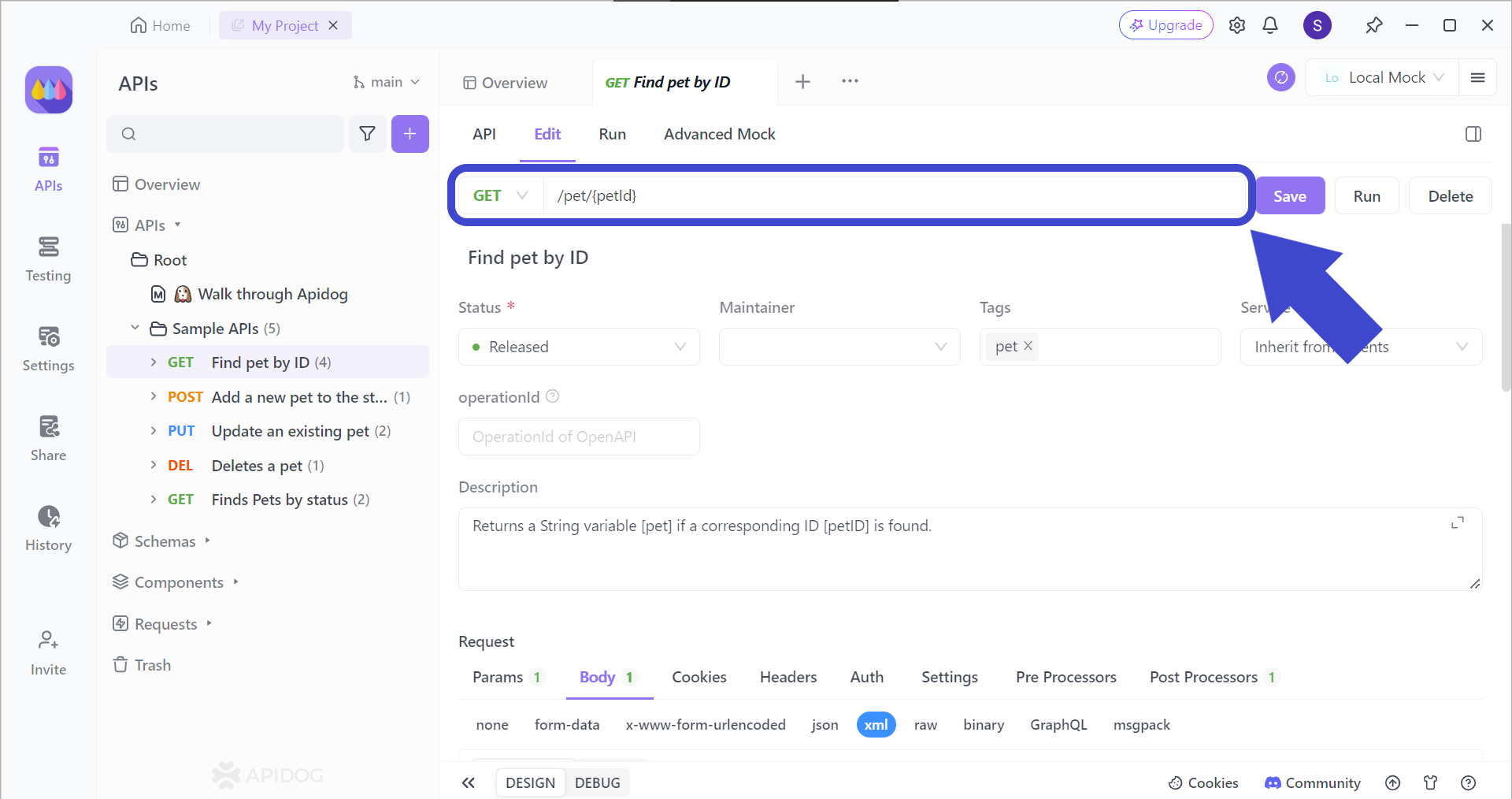
To test an endpoint, simply enter its URL. Include any necessary parameters specific to that endpoint. Feeling unsure about complex URLs with multiple parameters? A separate resource (not included here) offers guidance on how to target specific data within larger datasets.
If you're unsure about using multiple parameters in a URL, this article can guide you on how to hit the exact resource within larger datasets!
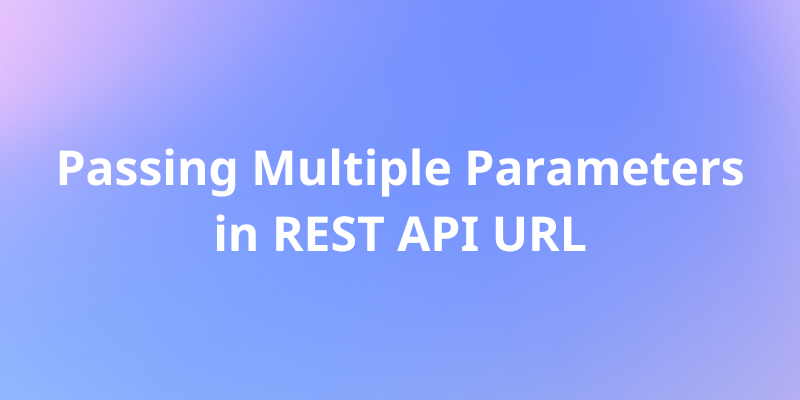
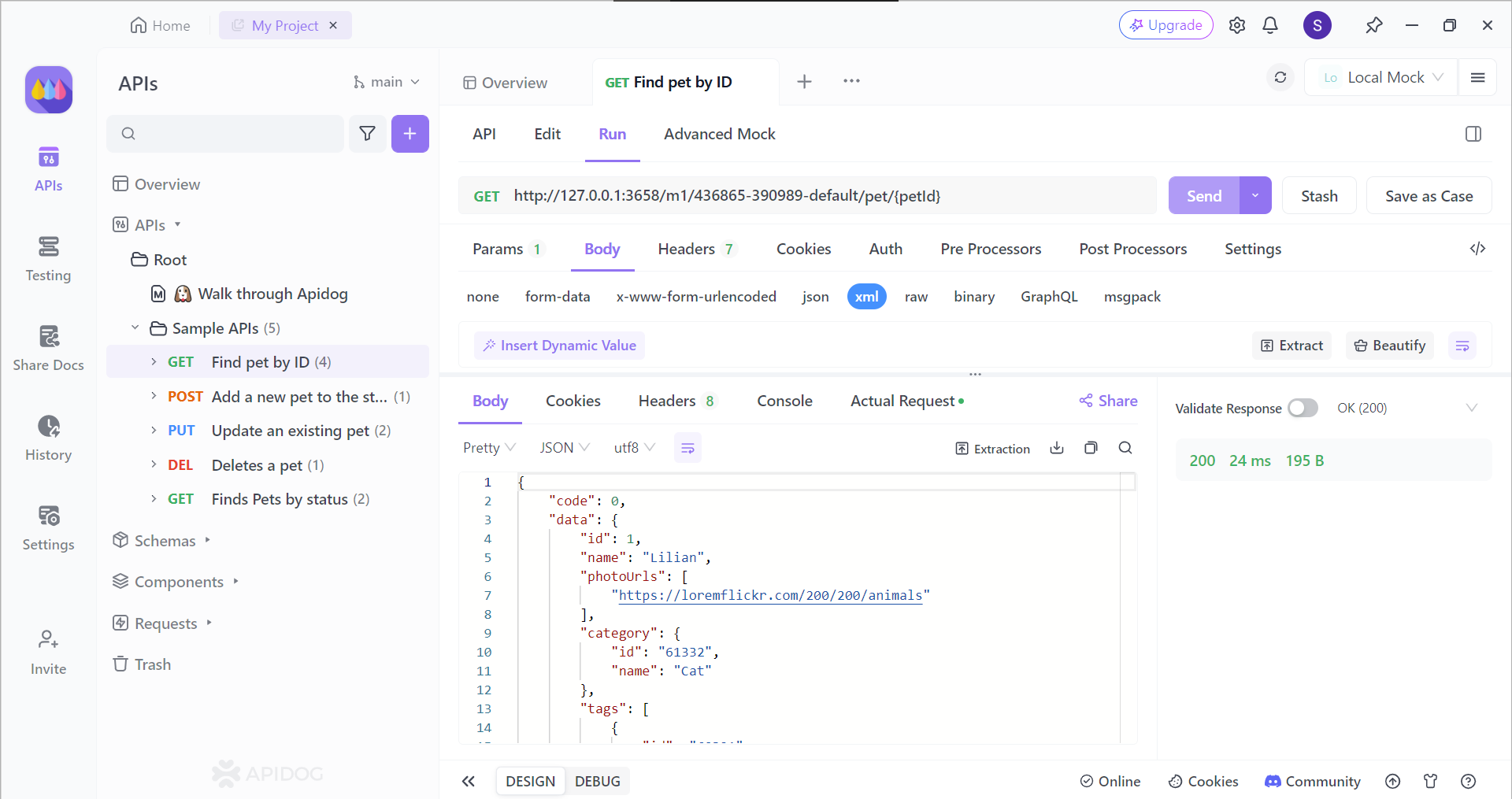
Pressing the Send button triggers the request and displays the API's response in full detail. The status code quickly indicates success or failure. You can also dive into the raw response, revealing the exact data format your client code needs to process information from the backend servers.
Conclusion
The Airbnb API has undeniably shaped the travel tech landscape, empowering developers to build innovative applications that leverage the platform's extensive listings and functionality. However, for developers seeking more control or a wider reach, exploring alternatives is crucial. Here, the focus might shift towards scraping data from various short-term rental platforms or utilizing metasearch engines that aggregate listings across multiple providers. This approach offers greater flexibility and the ability to cater to a broader range of accommodation options.
The future of travel tech lies in fostering an open and interconnected ecosystem. By embracing a combination of APIs from various short-term rental platforms, scraping techniques, and metasearch engine integration, developers can create truly comprehensive travel applications. This not only benefits users by offering the widest possible selection of accommodations but also fosters healthy competition within the sharing economy, driving innovation and ultimately leading to a more robust and user-centric travel experience.





